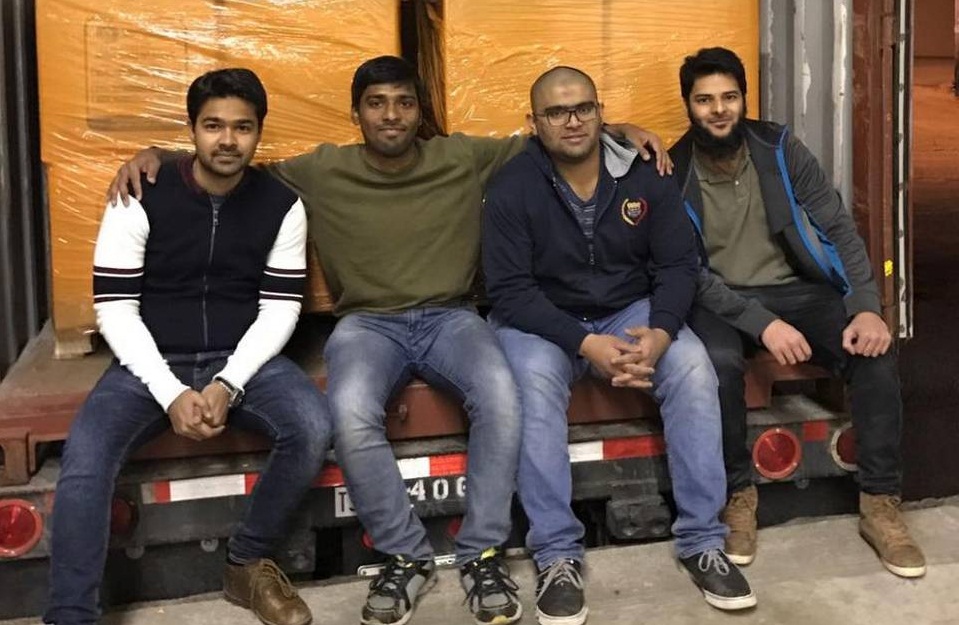
RNA - About 25 members of the MSA and the Arabic Club at SIUE helped collect and organize donations of clothing and food in November for the Helping Hand for Relief and Development, which is sending supplies to Syrian refugees in Jordan, Macedonia, Lebanon and Kosovo.
Helping Hand is a global humanitarian organization headquartered in Michigan that responds to emergency and disaster situations around the world, as well as working on long-term relief and development programs. The collection and sorting took place in St. Louis.
The 40,000 pounds of food and clothing they helped pack in a shipping container is now in Lebanon and will be distributed to about 10,000 people, said Nadia Zeeshan, director of in-kind efforts for Helping Hand.
The SIUE students got one of their professors to join in the effort, too. Dr. Elaine Abusharbain, an associate professor in biology, said her part of it was pretty easy: She had a truck with a trailer.
“They said they needed help because they had big loads (of donated food, clothing and baby items). And as we were driving to St. Louis, more donations came in.”
Currently, Helping Hand is asking for donations of all kinds from the St. Louis area, including clothing, food and cash, which will be part of a possible February shipment.
The SIUE clubs will continue to help.
“With in-kind (donations), the most important wish list is food and winter clothing,” said Ramsha Durrani, 19, Arabic Club president and MSA vice president. Children don’t mind “American” clothing, but women prefer long shirts.
Nadia with Helping Hand has seen the need first-hand. In August, she visited one of the group’s locations in Jordan and also met with refugees in Lebanon.
“It was a life-changing experience,” she said. “It was disturbing. They all said they want to go home. ... They didn’t want to be a refugee.”
Nadia said many families she met were without their husbands and fathers because the men were not allowed to cross the borders.
“They were being killed. There were only women and kids,” making up most of the refugee camps there.
For the students’ part, the effort was not about garnering any attention.
“We never knew it was going to be in the news,” said MSA President Zia Hasan Ansari, 28. The native of India is studying for a master’s degree in electrical engineering.
For Muslims, “If you’re going to be doing something for somebody, showing off” is not a faithful act, said Ramsha, who is Pakistani-American.
The exception is if the act is advertised in order to compel others to act as well, she said. Because Helping Hand will ship another container of clothing and food to Syrian refugees in the next couple few months, it’s good for the students to talk about what they’ve done in hopes that others will donate or help as well.
The 150 members of the MSA are all Muslim, with about 40 percent Americans and the rest “almost from everywhere,” said Zia.
Both Zia and Ramsha say the Muslim faith is often misrepresented in the media and in popular culture, and both clubs host events to educate others.
“Our main purpose is to bring awareness,” Ramsha said. The clubs do that through dinners, performances and cultural events. They are also open to answering any questions.
Ramsha says she is often asked how she speaks English so well.
“It’s the language used in schools in Pakistan!” she said, laughing.
They work to overcome stereotypes.
“It’s the whole terrorist issue,” Ramsha said. “The word ‘Islam’ itself means ‘Peace.’”
“There is a fine line between Muslim and not a Muslim,” Zia said, tracing his finger on a tabletop in a straight line. “You have to be a human first, and be a peaceful Muslim.”
847/940